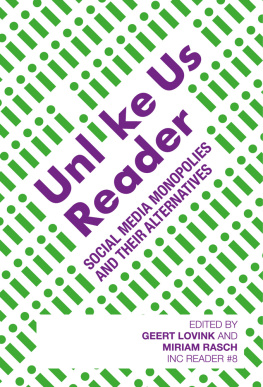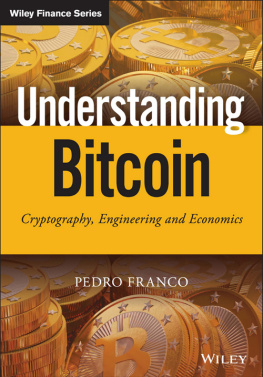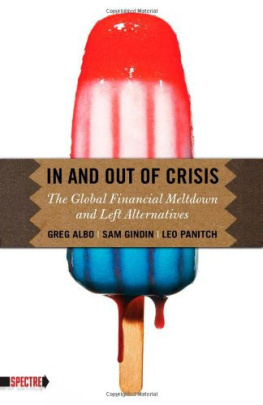MoneyLab Reader: An Intervention in Digital Economy
INC Reader #10
MoneyLab is part of a global movement that demands the democratization of the design of our financial futures. Audacity is essential in times of crisis. And so we must engage constructively with hackers, entrepreneurs, and other creators who take up the call for economic alternatives. One first step is a map of the present: What works and what doesnt? What is worth pursuing and what must be left aside? Which histories bear on the present moment? And what are the limits of our economic imagination?
The MoneyLab Reader brings developments in crowdfunding, currency design, technologies of payment, and other economic experiments into dialogue. The authors of this volume discuss the implications of the current architecture of global finance, its impact on ever-growing income disparity, and question money and finance as such. It is not always clear, for instance, whether genuine alternatives are unfolding or if we are simply witnessing the creative extension of neoliberalism. At stake is the full spectrum of technologies of economic (re)distribution.
MoneyLab Reader: An Intervention in Digital Economy
MoneyLab Reader: An Intervention in Digital Economy
Editors: Geert Lovink, Nathaniel Tkacz and Patricia de Vries
Copy editing: Annie Goodner, Morgan Currie, Jess van Zyl, Matthew Beros, Miriam Rasch
Design: Katja van Stiphout
EPUB development: Andr Castro, Gottfried Haider (PublishingLab) Cover design: Content Context
Printer: Drukkerij Tuijtel
Publisher: Institute of Network Cultures, Amsterdam, 2015
ISBN: 978-90-822345-5-8 (print)
ISBN: 978-90-822345-6-5 (EPUB)
Contact
Institute of Network Cultures
phone: +31205951865
email: info@networkcultures.org
web: www.networkcultures.org
Order a copy or download this publication freely at: www.networkcultures.org/publications/
Join the MoneyLab mailing list at: http://listcultures.org/mailman/listinfo/moneylab_listcultures.org
Supported by: Amsterdam University of Applied Sciences (Hogeschool van Amsterdam), Amsterdam Creative Industries Publishing and the University of Warwick




Thanks to everyone at INC, to all of the authors for their contributions, Annie Goodner and Morgan Currie for their copy editing, and to Amsterdam Creative Industries Publishing for their financial support.
This publication is licensed under Creative Commons Attribution-NonCommercial-ShareAlike 4.0 Unported (CC BY-NC-SA 4.0). To view a copy of this license, visit http://creativecommons.org/licenses/by-nc-sa/3.0/.
Previously published INC Readers
The INC Reader series is derived from conference contributions and produced by the Institute of Network Cultures. They are available in print, EPUB, and PDF form. The MoneyLab Reader is the tenth publication in the series.
INC Reader#9: Ren Knig and Miriam Rasch (eds),
Society of the Query Reader: Reflections on Web Search, 2014.
INC Reader #8: Geert Lovink and Miriam Rasch (eds),
Unlike Us: Social Media Monopolies and Their Alternatives, 2013.
INC Reader #7: Geert Lovink and Nathaniel Tkacz (eds),
Critical Point of View: A Wikipedia Reader, 2011.
INC Reader #6: Geert Lovink and Rachel Somers Miles (eds),
Video Vortex Reader II: Moving Images Beyond Youtube, 2011.
INC Reader #5: Scott McQuire, Meredith Martin and Sabine Niederer (eds),
Urban Screens Reader, 2009.
INC Reader #4: Geert Lovink and Sabine Niederer (eds),
Video Vortex Reader: Responses to YouTube, 2008.
INC Reader #3: Geert Lovink and Ned Rossiter (eds),
MyCreativity Reader: A Critique of Creative Industries, 2007.
INC Reader #2: Katrien Jacobs, Marije Janssen and Matteo Pasquinelli (eds),
CLICK ME: A Netporn Studies Reader, 2007.
INC Reader #1: Geert Lovink and Soenke Zehle (eds),
Incommunicado Reader, 2005.
All INC Readers, and other publications like the Network Notebooks Series and Theory on Demand, can be downloaded and read for free. See www.networkcultures.org/publications.
Contents
Saskia Sassen
When Money Becomes an Extraction Tool Rather Than Exchange Medium: Foreword to the MoneyLab Reader
Geert Lovink and Nathaniel Tkacz
MoneyLab: Sprouting New Digital-Economic Forms
The Long Game
Keith Hart
Money in the Making of World Society
Franco "Bifo" Berardi
Is There Life Beyond Money?
Ralph and Stefan Heidenreich
On a Post-Monetary Network Based Economy
Douglas Rushkoff
Playability and the Search for an Open Source Economy
Andrew Ross
Accumulation and Resistance in the 21st Century
Financial Interventions
Primavera De Filippi and Samer Hassan
Measuring Value in the Commons-Based Ecosystem: Bridging the Gap Between the Commons and the Market
Pekka Piironen and Akseli Virtanen
Democratizing the Power of Finance: A Discussion About Robin Hood Asset Management Cooperative with Founder Akseli Virtanen
Lena Rethel and Irwan Abdalloh
Inculcating Ethical Behaviour in Market Transactions? The Case of the Sharia Online Trading System in Indonesia
Critical Currencies
David Golumbia
Bitcoin as Politics: Distributed Right-Wing Extremism
Beat Weber
The Economic Viability of Complementary Currencies: Bound to Fail?
Tiziana Terranova and Andrea Fumagalli
Financial Capital and the Money of the Common: The Case of Commoncoin
Finn Brunton
Heat Exchanges
Economies of Imagination
Max Haiven
Money as a Medium of the Imagination: Art and the Currencies of Cooperation
Stephanie Rothenberg
Reversal of Fortune: Visualizing Marketized Philanthropy
Paolo Cirio
(W)orld Currency
Jim Costanzo
The Free Money Movement
Technologies of Payment
Bill Maurer and Lana Swartz
Wild, Wild West: A View from Two Californian Schoolmarms
Rachel ODwyer
Money Talks: The Enclosure of Mobile Payments
Erin B. Taylor
Mobile Money: Financial Globalization, Alternative, or Both?
Eduard de Jong, Nathaniel Tkacz, and Pablo Velasco Gonzlez
Live as Friends and Count as Enemies: On Digital Cash and the Media of Payment
Crowdfunding and Beyond
Inge Ejbye Srensen
Go Crowdfund Yourself! Some Unintended Consequences of Crowdfunding for Documentary Film and Industry in the U.K.
Rene Ridgway

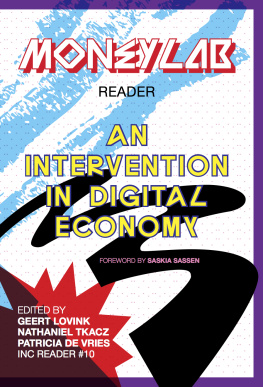

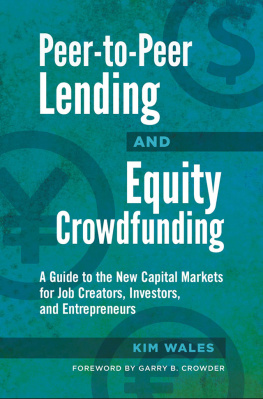
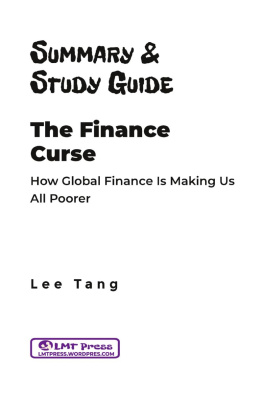
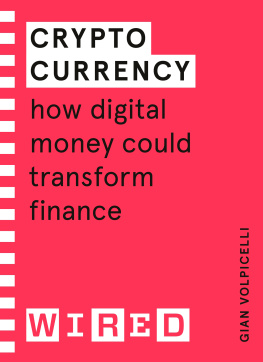
![Pedro Franco [Pedro Franco] - Understanding Bitcoin: Cryptography, Engineering and Economics](/uploads/posts/book/119679/thumbs/pedro-franco-pedro-franco-understanding.jpg)
